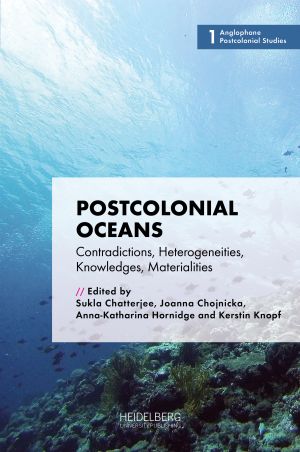
Zitationsvorschlag
Lizenz

Dieses Werk steht unter der Lizenz Creative Commons Namensnennung - Weitergabe unter gleichen Bedingungen 4.0 International.
Identifier
Veröffentlicht
Postcolonial Oceans
Contradictions, Heterogeneities, Knowledges, Materialities
Dieses Buch leistet einen Beitrag zur Untersuchung von Ozeanen, Meeren, Küstengewässern und Flüssen im Kontext der Blue Humanities, indem es sich dem Thema Wasser aus verschiedenen epistemologischen, narratologischen, geografischen, kulturellen und disziplinären Perspektiven nähert und diese miteinander vernetzt.
Die Beiträger:innen aus Afrika, Asien, der Karibik, Europa, Nordamerika und dem Pazifik beschäftigen sich mit den Verflechtungen zwischen Ozeanen, Küstengebieten, Flüssen, Menschen, Tieren, Pflanzen, Organismen und Landschaften in den Bereichen Kulturgeschichte und Kulturwissenschaften, critical race theory und postkoloniale Studien, Meeres- und Umweltstudien, Linguistik, Literatur-, Film- und Medienwissenschaften.





